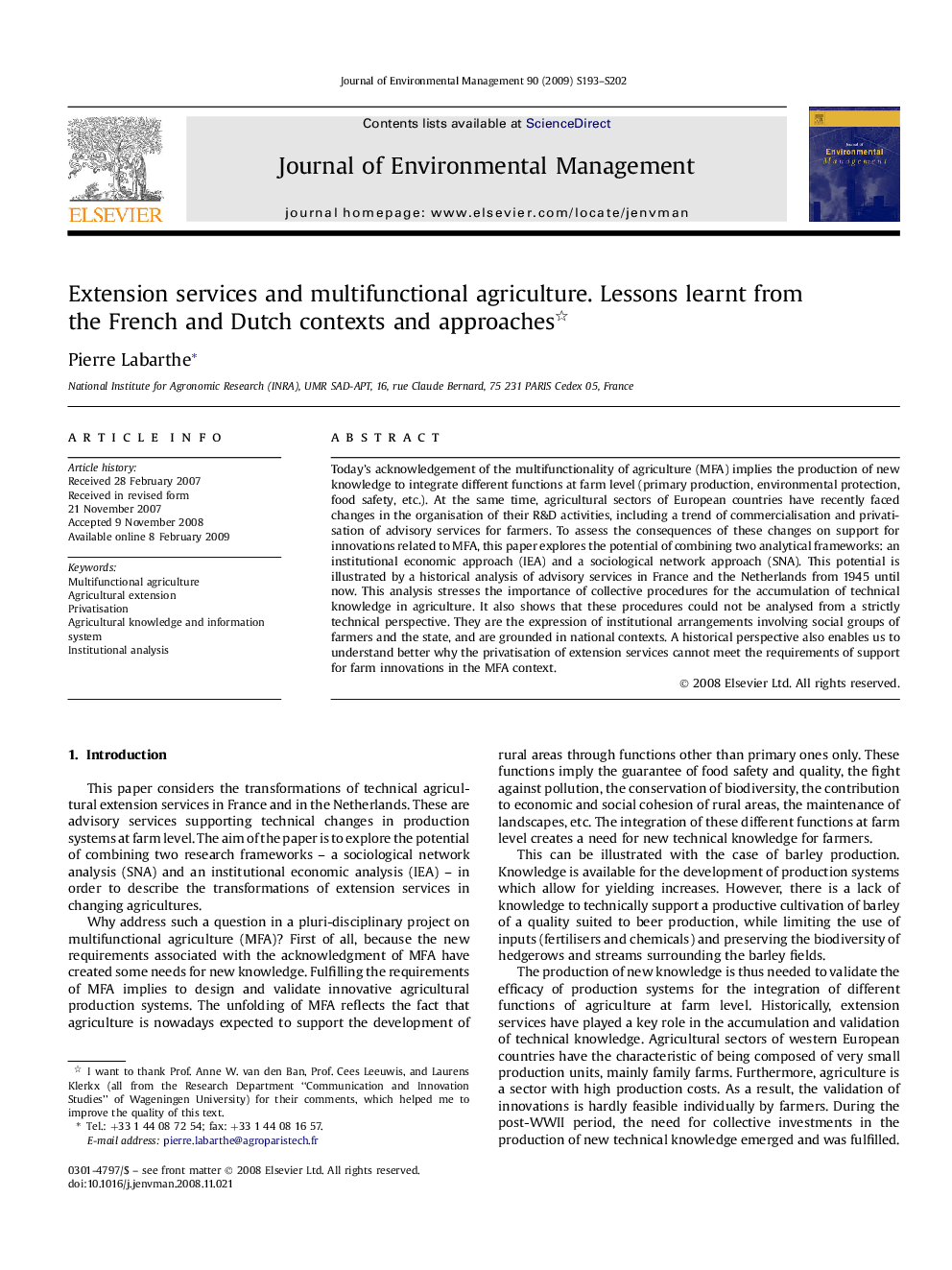| Article ID | Journal | Published Year | Pages | File Type |
|---|---|---|---|---|
| 1057912 | Journal of Environmental Management | 2009 | 10 Pages |
Today's acknowledgement of the multifunctionality of agriculture (MFA) implies the production of new knowledge to integrate different functions at farm level (primary production, environmental protection, food safety, etc.). At the same time, agricultural sectors of European countries have recently faced changes in the organisation of their R&D activities, including a trend of commercialisation and privatisation of advisory services for farmers. To assess the consequences of these changes on support for innovations related to MFA, this paper explores the potential of combining two analytical frameworks: an institutional economic approach (IEA) and a sociological network approach (SNA). This potential is illustrated by a historical analysis of advisory services in France and the Netherlands from 1945 until now. This analysis stresses the importance of collective procedures for the accumulation of technical knowledge in agriculture. It also shows that these procedures could not be analysed from a strictly technical perspective. They are the expression of institutional arrangements involving social groups of farmers and the state, and are grounded in national contexts. A historical perspective also enables us to understand better why the privatisation of extension services cannot meet the requirements of support for farm innovations in the MFA context.
